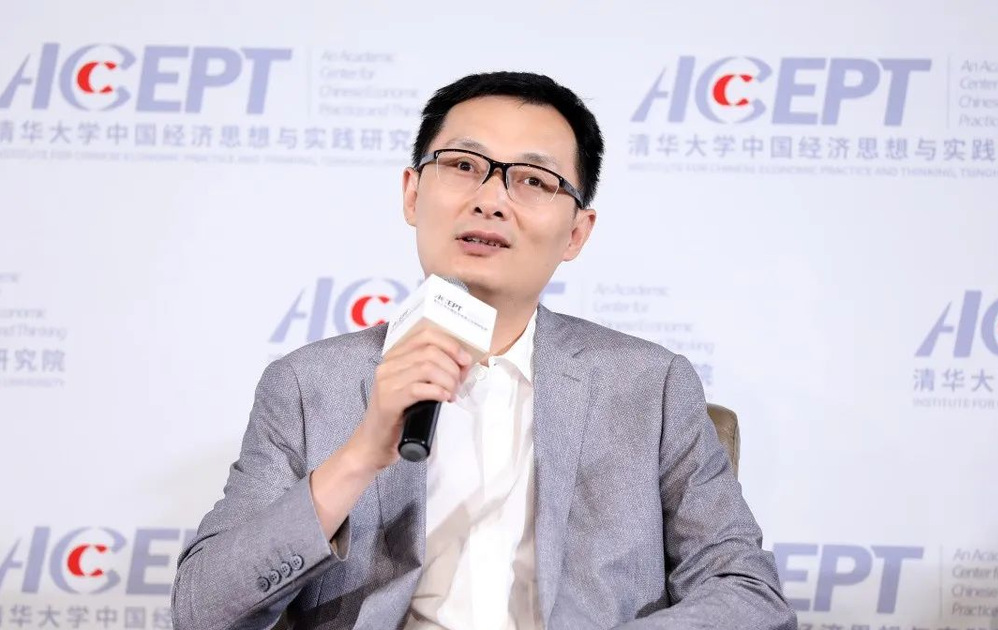Zhang Bin: Steep interest rate cuts represent the most effective tool to solve the problem of insufficient demand
The following is a summary of Zhang Bin's comments during a roundtable discussion at the 45th Tsinghua University Forum on China and the World Economy held at Tsinghua University, Beijing, on June 17, 2023. Zhang is the Deputy Director of the Institute of World Economics and Politics (IWEP) at the Chinese Academy of Social Sciences.
On June 17, 2023, the 45th Tsinghua University Forum on China and the World Economy, hosted by Tsinghua University's Academic Center for Chinese Economic Practice and Thinking (ACCEPT) in partnership with the university's School of Social Sciences and School of Economics and Management, was held on campus. The Deputy Director of the Institute of World Economics and Politics (IWEP) at the Chinese Academy of Social Sciences, Zhang Bin, participated in a roundtable discussion at the forum alongside other distinguished guests where he commented on the current state of China’s economy.

On June 17, 2023, the 45th Tsinghua University Forum on China and the World Economy was held inside the Weilun Building’s main lecture hall on campus at Tsinghua University’s School of Economics and Management. The biannual event was hosted by Tsinghua University’s Academic Center for Chinese Economic Practice and Thinking (ACCEPT) under the theme of "2023 Mid-Year Economic Outlook." During the forum’s proceedings, Zhang Bin, Deputy Director of the Institute of World Economics and Politics (IWEP) at the Chinese Academy of Social Sciences, participated in a roundtable discussion alongside other distinguished guests where he commented on the current state of China’s economy.
According to Zhang Bin, the primary contradiction affecting the performance of China’s macroeconomy has shifted from one of “an inclination towards overheating versus overcooling” to one of “an inclination towards overcooling versus overheating,” with insufficient demand having become the most striking contradiction to define China's macroeconomic situation over the past decade. Prior to that, capital-intensive industries had borrowed significant amounts while generating sizeable savings deposits, which flowed into the coffers of enterprises, local residents, and governments alike, underpinning a period of strong and growing overall purchasing power. When these industries passed the peak in their development, the volume of corporate loans began to fall sharply, with individual borrowers and local financing platforms becoming the most important mainstays for driving credit growth, and yet these two channels alone were unable to sustain a sufficient expansion in lending.
When it comes to resolving the problem of weak demand, the most effective measure would be an appreciable cut to interest rates. The country's borrowers, including individuals, governments and corporations, together hold RMB 330 trillion in debt, such that if interest rates were sufficiently reduced, the amount paid in interest alone on outstanding loans could be decreased by more than RMB 7 trillion. At the same time, these lower interest rates would contribute to higher net asset values, supporting an increase of at least RMB 15 trillion in equity valuations on the stock market. If this more than RMB 20 trillion combined was then offloaded onto businesses, residents and government entities, it would provide a significant boost to overall purchasing power. We have been calling for a significant reduction in interest rates because they represent the most powerful tool for rebalancing the interrelationship between savings and investment and for reversing waning aggregate demand.
Some people hold the view that interest rate cuts will increase pressures on capital flows and the RMB exchange rate, but in fact the most important component for determining China's currency exchange rate involves internal factors. By lowering interest rates enough to the point that it brings an end to the problem of insufficient aggregate demand, we can improve the fundamentals of the domestic economy, which in turn will provide the best guarantee for maintaining the RMB exchange rate.




